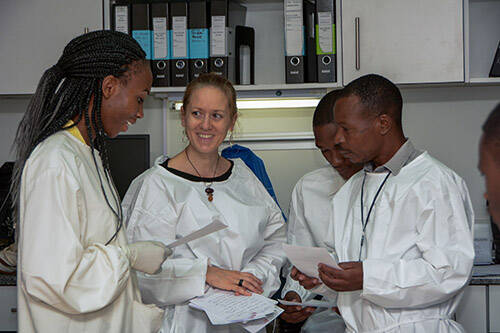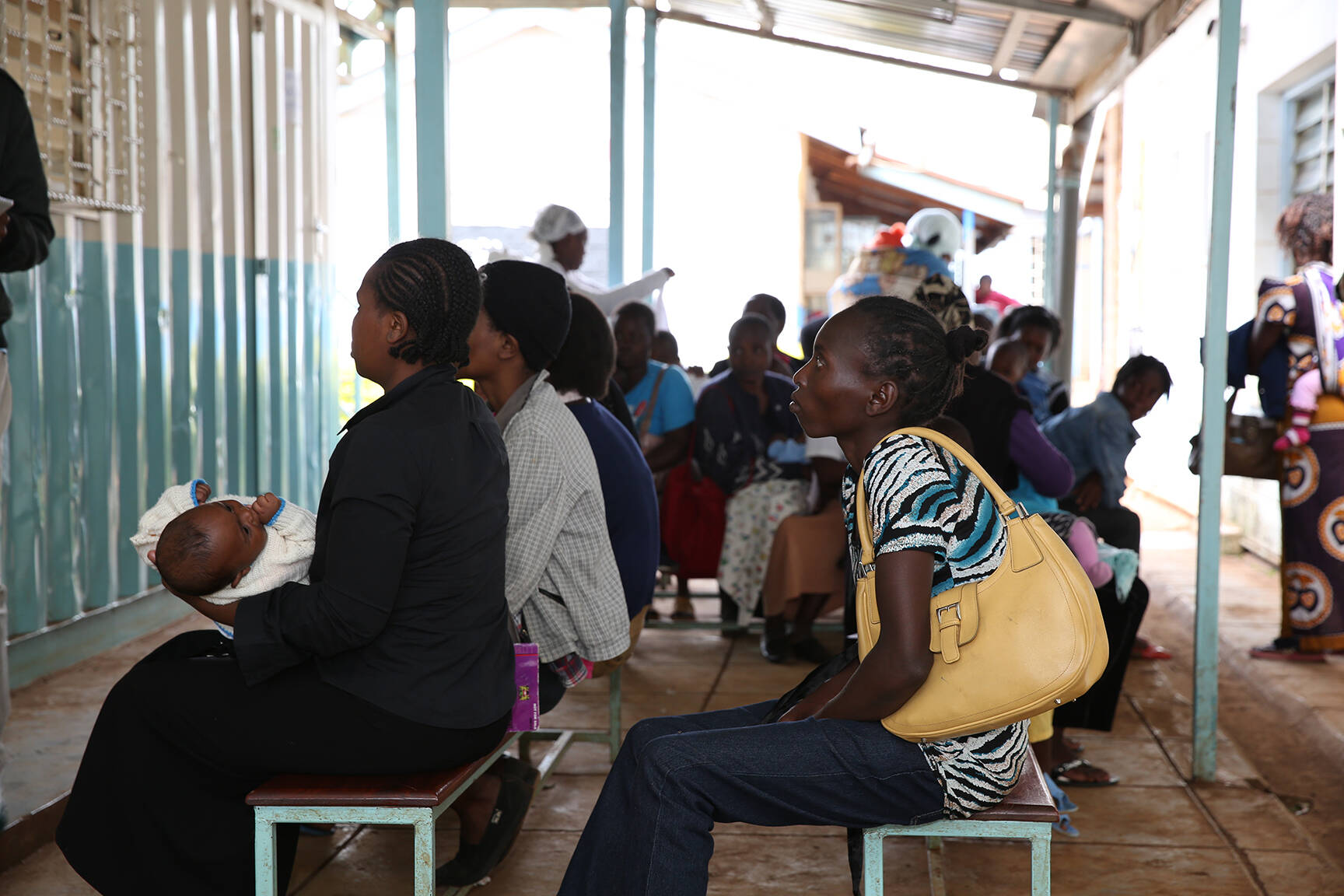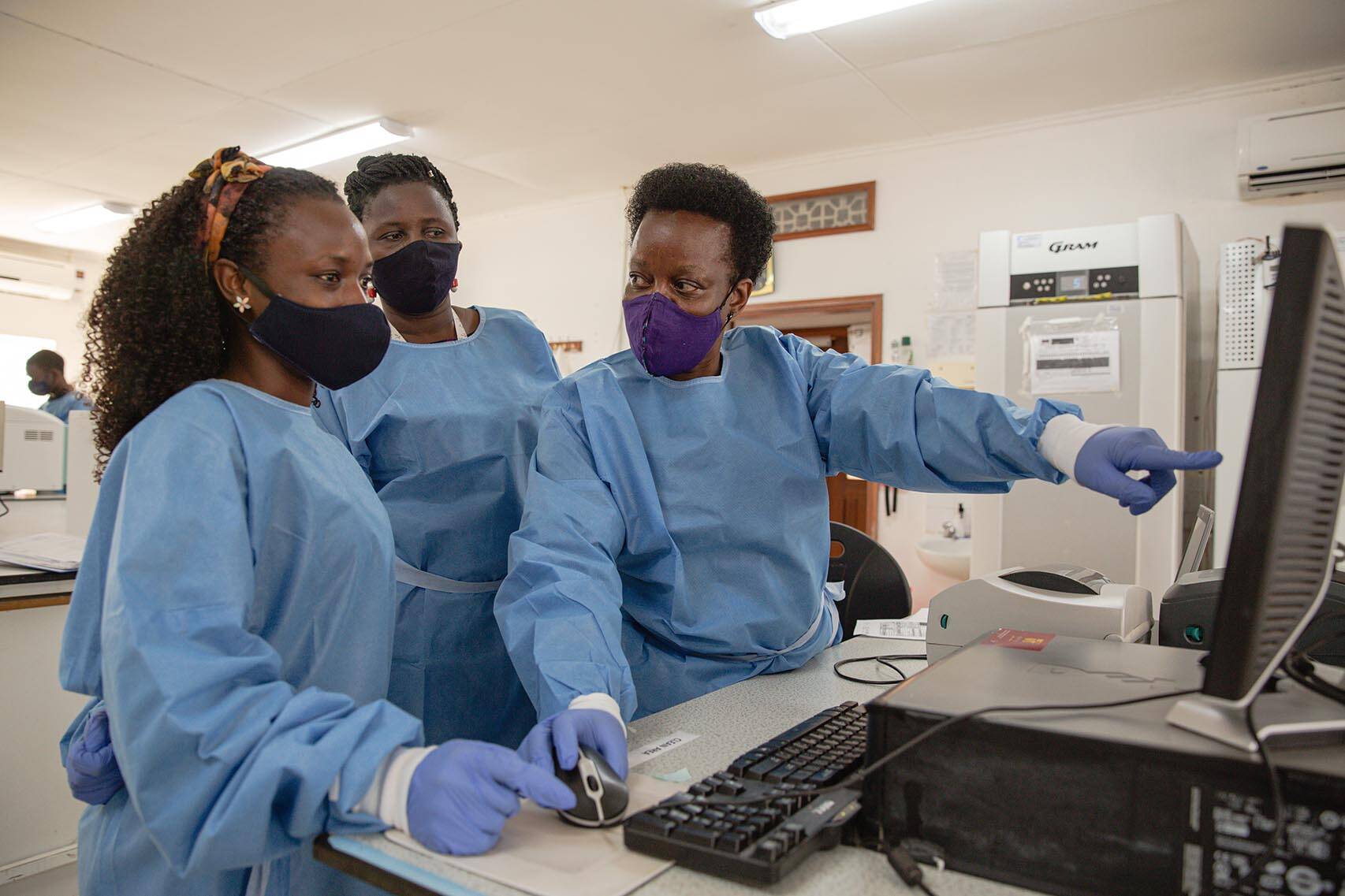
In her Senior Fellowship project, Professor Stellah Mpagama is running a clinical trial to determine whether N-acetylcysteine (NAC) could reduce the severity of adverse reactions associated with treatment regimens for multidrug-resistant TB. These regimes are based on use of multiple drugs taken for prolonged periods, some of which have harmful effects that may require treatment to
be stopped. There is some evidence that NAC can protect cells from the damage caused by TB treatments but there is currently little data relating to its potential amelioration of side effects arising from treatment of MDR-TB.
Professor Mpagama is supervising the work of several early-career researchers in Tanzania and is also assessing the use of new technologies in TB research and practice. This includes use of whole-genome sequencing to identify resistance mutations and guide choice of treatment, and application of a relatively new method, the molecular bacterial load assay, to detect and quantify mycobacterial growth. Culture methods for TB are slow and conventional molecular tests do not distinguish between
DNA from live or killed cells. Recent studies have demonstrated the ability of the molecular bacterial load assay to distinguish between ongoing TB disease and post-TB lung disease, and also its use to compare the killing ability of different treatment regimens for MDR-TB.

Also in the malaria field, Senior Fellow Dr Makhtar Niang has been exploring the contribution of asymptomatic malaria infections to the continuing transmission of disease. As cases numbers fall and elimination becomes a realistic possibility, asymptomatic infections could provide an important reservoir of parasites, sustaining transmission.
Focusing on two villages in Senegal, Dr Niang has undertaken a detailed mapping of individual cases and infections over a four-year period. The results provide strong evidence that the presence of asymptomatic infections leads to transmission to other household members. The findings suggest that mass testing and treatment could contribute to malaria elimination at the village level.
Professor Alexander Yaw Debrah’s Senior Fellowship project focuses on trials of potential new treatments for parasitic worm infections, onchocerciasis and lymphatic filariasis. Preparatory work, published in 2022, has generated data on the presence of lymphatic filariasis in two ‘hotspots’ in Ghana and the performance of different detection technologies. Following mass drug administration at the sites for many years, microfilariae were detected in less than 1% of those sampled, suggesting that transmission has been halted. However, positive antigen tests were more common and above the threshold for elimination, raising questions about the suitability of current thresholds for assessing elimination status.
Professor Faith Osier maintains a group at the KEMRI/Wellcome Research Programme at Kilifi, Kenya, which focuses on immune responses to the malaria parasite to inform vaccine development. These studies include studies of both natural infection and controlled human infection in specially designed clinical research facilities. Much research focuses on the invasion red blood cells by merozoites, but less on subsequently infected cells. In 2022, results from a human malaria infection study were published, demonstrating that participants who controlled malaria infection and did not experience symptoms showed high levels of antibody-dependent phagocytosis of infected red blood cells. This effect was associated with the presence of merozoite proteins on the surface of the red blood cells. Antibodies against these merozoite proteins can block invasion of red blood cells, and these results suggest that they may also be important in clearing infected red blood cells and keeping infections in check.
Human challenge studies have also shown that the most abundant protein on the surface of merozoites, MSP-1, may be a critical target of several protective immune responses. Previous studies have tended to focus on fragments of MSP-1, but Professor Osier’s group found that antibodies to full-length MSP-1 protein correlated with protection against malaria. These antibodies trigger five different protective immune responses, each of which seems to independently contribute to protection. The results could have important implications for vaccine development targeting MSP-1, which has to date had limited success.
scroll down
EDCTP Senior Fellowships provide support for established researchers in sub-Saharan Africa working on poverty-related diseases. As well as specific research projects, Senior Fellowships also enable fellows to oversee the work of early-career researchers, helping to nurture the next generation of researchers and build research capacity in the region.
In 2022, EDCTP Senior Fellows have contributed key findings on immunity to malaria, asymptomatic malaria infections, characterisation of TB infections, and control of neglected infectious diseases.

Senior Fellows in 2022
